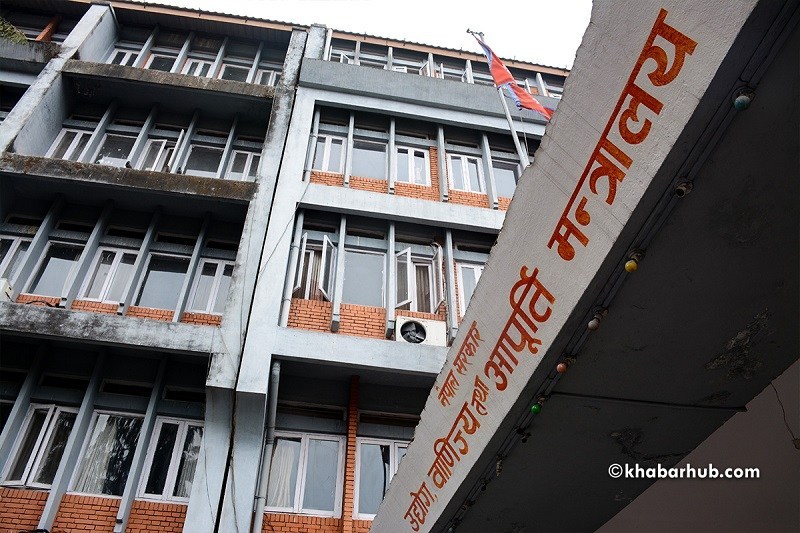KATHMANDU: The Ministry of Industry, Commerce, and Supplies has initiated the process of appointing office bearers in industries that have been defunct for years, despite lacking a concrete plan for their revival.
The move, which targets Nepal Metal Company Limited and Nepal Orind Magnesite Pvt. Ltd., has raised concerns over whether the appointments are driven by political motives rather than genuine efforts to restore these government-invested enterprises.
On March 23, the ministry published a notice inviting applications for the position of chairman in both industries, setting a deadline of just seven days.
According to Chhabindra Parajuli, Chief of the Ministry’s Administration and Corporations Division, the appointments are necessary to evaluate potential paths forward for the long-defunct industries. However, the decision comes despite past studies concluding that these companies are unviable and should either be privatized or closed entirely.
A committee formed in 2021 had advised against further investments in Nepal Metal Company Limited, citing its failure to produce commercially viable goods since its establishment in 1976.
Similarly, Orind Magnesite Pvt. Ltd. was deemed an unsuccessful public-private partnership model, with the committee recommending alternative measures for its land and assets rather than continued operations. The company has incurred losses amounting to Rs 4,458.01 crore as of the fiscal year 2018/19.
The ministry’s urgency in making these appointments has drawn criticism, particularly as Industry Minister Damodar Bhandari, a long-time UML representative, has not introduced any clear policy for the revival or management of these industries.
The government recently amended the Privatization Act, 1994, with Finance Minister Bishnu Paudel stating in Parliament that the ordinance was meant to ensure better management of public institutions. However, the latest appointments have been seen as contradicting this intent, with skeptics viewing them as an attempt to place party loyalists in lucrative positions rather than addressing the core issues facing these industries.
Ministry officials defend the move, arguing that without leadership, it is difficult to determine how to handle the industries.
Joint Secretary Parajuli stated that even though the industries are closed, salaries and allowances for employees continue to be paid from the state treasury. He added that appointing a chairman is necessary to assess the next steps, as the government seeks to reduce the financial burden of these non-operational enterprises.
Despite the closure of the application process on March 30, no approvals have been made yet, reportedly because Krishna Bahadur Raut, a key ministry official, is currently out of the capital. As the government moves forward with these appointments, questions remain over whether they will lead to meaningful reform or merely serve as political placements within defunct institutions.









Comment